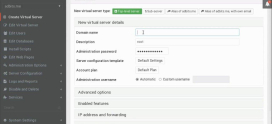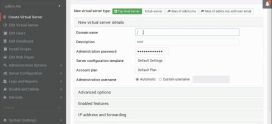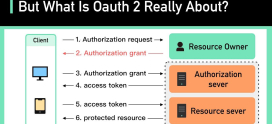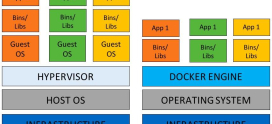How can e-commerce companies improve their data security measures?
As the world of retail and services becomes increasingly accessible at the click of a mouse, companies are turning to e-commerce to cement their position in their respective industries.
According to statistics, the number of online shoppers is expected to increase by 315 million year-on-year, reaching 4.1 billion in 2022. And the growth is expected to continue, reaching 23% by 2025, an increase of 5.2 percentage points in just five years.
To reach the exponentially growing number of online consumers, e-commerce companies are stepping up their operations. However, running an online business comes with some risks. For one, e-commerce companies are highly vulnerable to hacker attacks, which puts their company and customer data at risk. They can also face attacks and downtime, which impacts employee productivity and company revenue.
No customer will enjoy shopping at a store that puts their data at risk. If your customers believe you are not taking steps to protect their personal information, they will likely switch to the competition. Therefore, you must promote data security to increase the growth of your e-commerce business.
You can implement various strategies to secure your online business data and manage permissions. Some of them are:
#1 Use the principle of least privilege
Organize your company's data handling and ensure security by enforcing the principle of least privilege, the practice of granting appropriate access to certain employees. Simply put, this means that you only grant certain employees the right to access the data or information they need to perform certain tasks. For example, if a team member only needs to review online material, do not give them editing permission.
Likewise, what supervisors or managers should do should be limited to them. In other words, junior employees should not have access to information intended for superiors. This will go a long way in preventing your e-commerce data from being compromised and thus improve your cybersecurity strategy.
#2 Encrypt online files
In most cases, running an e-commerce store requires working from home, so you share documents or files through online platforms, but this makes your documents vulnerable to online attacks.
One of the best ways to secure your online documents is to make sure they are sent to the right recipients. However, this is not always the case and sometimes they can fall into the hands of the wrong people who can use them to their advantage. This is why it is advisable to encrypt online files before sending them to the intended recipients.
Encryption technology allows you to encrypt files to hide their meaning, so that no one who accidentally receives them can understand the information they contain. This prevents anyone from using your company data without your permission.
However, one may wonder: how will the intended user understand your documents? They will use the binary codes provided to decrypt your files. This will convert your files into a standard or everyday language. This will allow them to be read, understood and used. Always make sure to encrypt your online files before sharing them with employees and customers.
#3 Enforce two-factor authentication strategy
As technology advances rapidly, cybercriminals are finding new ways to attack online businesses. Some online security measures designed to protect e-commerce businesses from online attacks are no longer as effective. One of them is the use of passwords.
You can still create passwords to protect your e-commerce systems from unauthorized access, but remember that passcodes can be easily compromised, which is why you need to enforce a two-factor authentication strategy. This means adding another layer of security to your passcodes.
With two-factor authentication (2FA), no one can access your e-commerce company's systems with just passwords. The additional security layer of 2FA ensures that only authorized people have access to your protected data.
You can use various tactics to establish a 2FA strategy. These include asking users to answer some secret questions and using fingerprints or voice recognition to access certain information. This will go a long way in protecting your data from unauthorized access.
#4 Update your systems regularly
If you want to protect your e-commerce business from online attacks, you cannot neglect to update your systems regularly. Hackers usually scan outdated systems to determine their vulnerabilities, so older system versions are more vulnerable to cybersecurity attacks. The systems you should update regularly include the website itself, the various types of software installed, and any other automation tools.
While this is true, keeping your systems updated regularly may not always be your top priority because you have many other tasks to do. Updating a system also takes a lot of time, so consider installing an automatic system update application. It will help you keep your systems up to date with less or no human intervention.
#5 Train your employees on online security risks and best practices
Another effective way to improve your cybersecurity is to educate your employees about the risks of online attacks. You also need to train your employees on how to recognize potential online attacks and how to deal with them.
Studies show that 95% of data breaches are caused by human error. While it's perfectly normal for mistakes to happen sometimes, they can be mitigated by properly training your employees and implementing best practices. Hold regular cybersecurity refresher courses to ensure your employees develop a comprehensive security awareness.
#6 Back up your files
Online criminals are constantly finding new ways to attack e-commerce businesses, so even after you invest in all of the above online security measures, attackers can still access your data.
Aside from online attacks, you can also lose data accidentally. For example, you can accidentally delete information that is necessary for your business to run. For these reasons, you should keep a backup of your files.
Data backup is the process of copying your online files or documents and storing them in another location so that you can recover lost files. So you don't have to worry about your data being lost due to online attacks or accidentally deleted because you can always find it.
Take away
Data is an essential part of your e-commerce business. It enables you to understand your customers and make strategic decisions.
However, your data must be protected from online attacks. You can achieve this by implementing the strategies described above.









